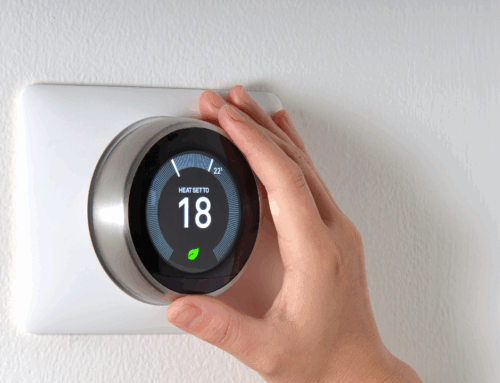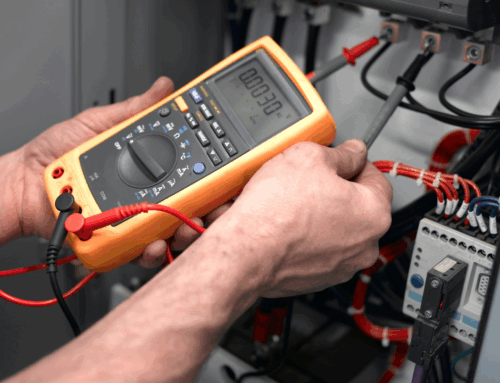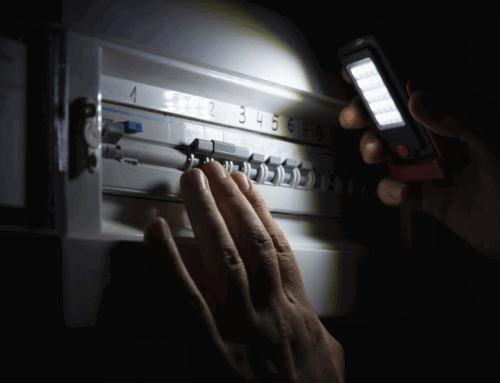Ensuring the safety and efficiency of electrical systems is paramount for any business. Commercial electrical safety audits play a crucial role in identifying potential hazards, ensuring compliance with regulations, and maintaining the overall health of your electrical infrastructure.
The Importance of Commercial Electrical Safety Audits
Commercial electrical systems are often complex and handle significant loads, making them susceptible to various risks if not properly maintained. Safety audits are essential for several reasons:
1. Preventing Accidents and Hazards: Regular audits help identify potential electrical hazards such as faulty wiring, overloaded circuits, and outdated equipment that could lead to fires, electrocution, or other serious accidents.
2. Ensuring Compliance: Adherence to local and national electrical codes and standards is mandatory for commercial properties. Safety audits ensure that your electrical systems comply with these regulations, avoiding legal issues and potential fines.
3. Optimising Efficiency: Identifying inefficiencies and outdated components through an audit can lead to recommendations for upgrades, resulting in improved energy efficiency and reduced operational costs.
4. Protecting Assets: By ensuring the safety and reliability of your electrical systems, audits help protect your valuable assets, including equipment, data, and the physical premises.
The Process of a Commercial Electrical Safety Audit
A comprehensive commercial electrical safety audit involves several steps to thoroughly evaluate the safety and performance of your electrical systems:
1. Initial Consultation: The process begins with a consultation to understand the scope of the audit and any specific concerns you may have.
2. Visual Inspection: Auditors conduct a visual inspection of all electrical components, including wiring, panels, outlets, and switches, to identify visible signs of wear, damage, or code violations.
3. Testing and Measurements: Using specialised equipment, auditors test various aspects of your electrical systems, such as circuit load capacities, insulation resistance, and grounding systems, to ensure they are functioning correctly.
4. Documentation Review: Reviewing existing documentation, including previous inspection reports, maintenance records, and electrical plans, helps auditors assess the history and current state of the electrical systems.
5. Risk Assessment: Auditors evaluate potential risks and hazards, prioritising areas that require immediate attention.
6. Report and Recommendations: After completing the audit, a detailed report is provided, outlining the findings and recommending necessary actions to address identified issues and improve overall safety and efficiency.
Benefits of Commercial Electrical Safety Audits
1. Enhanced Safety: The primary benefit of a commercial electrical safety audit is the enhanced safety of your workplace. By identifying and mitigating potential hazards, you can significantly reduce the risk of electrical accidents.
2. Cost Savings: Addressing inefficiencies and outdated equipment can lead to significant cost savings. Energy-efficient systems not only reduce utility bills but also decrease the likelihood of costly emergency repairs.
3. Compliance Assurance: Regular audits ensure that your business remains compliant with all relevant electrical codes and standards, protecting you from legal repercussions and potential fines.
4. Improved System Performance: Audits help identify areas where your electrical systems can be optimised, resulting in better performance and reliability.
5. Peace of Mind: Knowing that your electrical systems are safe and compliant provides peace of mind for business owners and employees, allowing them to focus on core operations without worrying about electrical issues.
Choosing the Right Commercial Electrical Auditor
Selecting a qualified and experienced auditor is crucial for the effectiveness of the audit. Consider the following when choosing a commercial electrical auditor:
– Credentials and Experience: Ensure the auditor has the necessary credentials and extensive experience in commercial electrical systems.
– Reputation: Look for auditors with positive reviews and testimonials from other commercial clients.
– Comprehensive Services: Choose an auditor who offers a thorough and detailed audit process, covering all aspects of your electrical systems.
Commercial electrical safety audits are vital for maintaining the safety, compliance, and efficiency of your business’s electrical systems. Regular audits not only protect your assets and employees but also contribute to long-term cost savings and operational success, contact us to learn more!







Leave A Comment